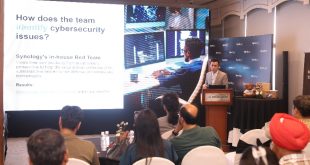- Lack of ESG professionals with standardised skillset is the biggest challenge in ESG implementation, and short and long-term measures are required to address this concern
- $35 trillion worth of assets are managed by investors who incorporate the ESG agenda into their investment strategies; the size of ESG investments in India ranges from $30 billion to $40 billion and is growing rapidly
- The ESG domain would provide tremendous job opportunities in the future — the clean energy sector alone would require more than 100 million professionals globally over the next 10-20 years which amounts to 3% of the total global employable workforce today
- There is need for regulatory intervention to step in and help enterprises and institutions with ESG implementation and assisting with access to finance for doing a good job of ESG.
New Delhi, March 16, 2022:
Think Change Forum (TCF), an independent think tank dedicated to generating new ideas and finding solutions for navigating the post-pandemic world, today organised a virtual roundtable on “ESG Capacity Development in India – Challenges, Progress and Pathways”. The event was moderated by Kumar Subramanian, Founding Partner and Managing Director, Sculpt Partners, and had three eminent panelists: Dr Pradeep Panigarhi, Head Corporate Sustainability, Larsen & Toubro Ltd.; Mr Shailendra Singh, Founder and CEO, SustainMantra; and Prof Purnamita Dasgupta, Chair Professor and Head, Environmental and Resource Economics Unit, Institute of Economic Growth, Delhi University.
The panellists converged on their view that the global climate crisis coupled with rising socioeconomic inequality and rapidly depleting natural resources and biodiversity poses existential challenges to mankind. By incorporating ESG (Environmental, Social and Governance) considerations in the way business is done, organisations can not only mitigate the negative impact of these challenges but also create and benefit from business opportunities. That’s why, the call for ESG compliances, reporting and transition has been growing louder around the world, including in India.
Globally, about $35 trillion worth of assets are managed by investors who incorporate the ESG agenda into their investment strategies. In India, the size of ESG investments ranges from around $30 billion to $40 billion and is growing rapidly. To make quick all-round progress, ESG adopters in India need the right financial resources (investments), technical resources (cutting-edge technology and equipment), and human resources (ESG professionals and experts). While progress has been made on the first two aspects, challenges with respect to a pipeline of ESG experts and human resources need urgent attention.
Considering the urgency of the matter, it is imperative that in the short term, we find creative solutions that can equip existing professionals to work on the ESG agenda, and in the long term, industries and academia work in close collaboration to develop a pool of ESG talent that is industry absorbable. For instance, the clean energy sector alone would require more than 100 million professionals globally over the next 10-20 years. The number constitutes more than 3% of the total global employable workforce that we have today. So, a mix of immediate and long-term measures is required to address the acute shortage of ESG professionals.
The availability of skilled and trained ESG professionals in India will also lead to a large number of small and medium enterprises (MSMEs), which play an important role in employment generation and the overall economy, have access to the required talent, and set and achieve ESG targets. The current set of consultants in the filed are untested and do not have a standardised skillset. Further, expert agencies operating in the space offer their services at very high rates, making it impossible for small business entities to afford them.
“India seems to be on track towards achieving its target of reducing the emissions intensity of its GDP by 33-35% by 2030 (now enhanced to 45%). Try and marry this with the idea of Net Zero by 2070. If you consider it from the industry perspective and try to place it within the context of ESG, I think there are some tremendous opportunities at hand. Of course, there are challenges in the way different business entities operate in the broader business environment. For example, it may be easier for large-cap companies to progress in certain areas like ESG but may not be possible for smaller enterprises to do so. The key question is, how do MSMEs cope with the situation, and how do we really bring them into the ESG fold? While there are a lot of opportunities, opportunities become important when we are able to place them in context,” said Prof Purnamita Dasgupta, Chair Professor and Head, Environmental and Resource Economics Unit, Institute of Economic Growth, Delhi University, while highlighting the key issues of trackability and comparability of ESG-related initiatives within companies and the need to generate awareness among the financial institutions on investing in the ESG area for better portfolio returns, among other benefits.
“As far as ESG targets are concerned, you need to have the right expertise within the team. You need to build real expertise; just giving training or introducing another capacity-building program doesn’t help. You need to understand the nitty-gritty of the business. Then only things work. The moment you commit something publicly, you have to deliver, and deliver in a way that you pass all kinds of scrutiny” said Dr Pradeep Panigarhi, Head Corporate Sustainability, Larsen & Toubro Ltd.
“Sustainability is a complex subject. Thera are a few things that we need to keep in mind. The first one is building awareness, right from the board level down to the bottom of a small and large companies. Then we need skills for operationalisation of sustainability within these companies. Persuasion plays a very important role in this process as it helps in getting interdisciplinary folks onto the same page. Lastly, it is a long process and so we have to be consistent and patient. Unless we invest in our schools and universities and start producing professionals other than doctors and engineers, we will not be able to fill the huge number of jobs that are going to come up in India in the coming years,” said Mr Shailendra Singh, Founder and CEO, SustainMantra.
“As is the case with many mission-critical enterprise agendas, progression on ESG matters requires a combination of financial capital, technology, as well as investments in human capital. Over the years, in India, we seem to have made some progress as far as sustainable financing and technology are concerned, but today, we really need to jump-start the process of creating a pool of skilled ESG professionals who can work at the cross-section of business and sustainability,” said event moderator Kumar Subramanian, Founding Partner and Managing Director, Sculpt Partners, a sustainability centric advisory firm
Even today, we have this idea in India that environment, social or governance issues have to do something with the public sector. So, the funds for such initiatives have to come out of the public exchequer. This approach needs to change. One way of doing it is to generate awareness among the financial institutions about how investing the ESG area can lead to better portfolio returns, among many other benefits.
Currently only about 150-200 companies are dedicatedly following ESG compliances and reporting. To increase this number, and to have more smaller organisations, the regulator can step in to ease implementation and ease access to finance for doing a good job of ESG. Meanwhile, the government can step in and introduce incentives for companies working in this direction.
Link to the video : https://youtu.be/2rX5ZOrf3gI
 Newspatrolling.com News cum Content Syndication Portal Online
Newspatrolling.com News cum Content Syndication Portal Online





